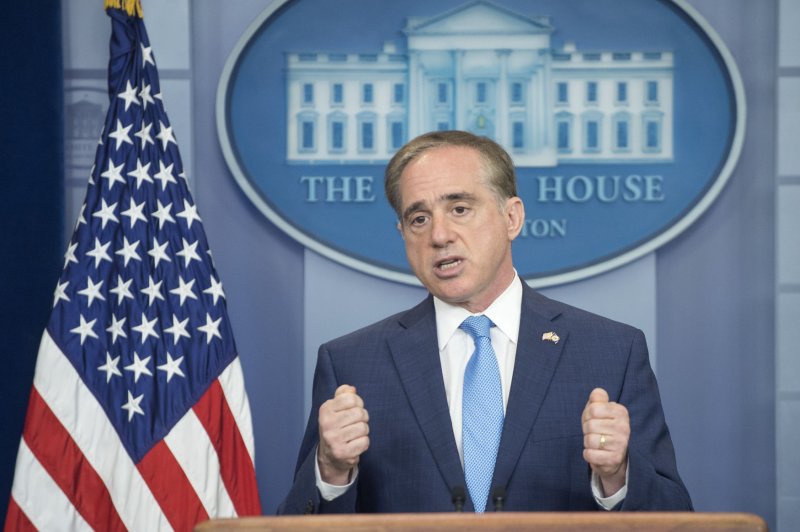1 of 3 | Veterans Affairs Secretary David Shulkin briefs the press on the status of his department in the Brady Press Briefing Room of the White House in Washington, D.C., on Wednesday. He suggested using medical marijuana to treat soldiers with post-traumatic stress disorder. Photo by Pat Benic/UPI |
License Photo
May 31 (UPI) -- Department of Veterans Affairs Secretary David Shulkin on Wednesday said he is open to expanding the use of medical marijuana to treat soldiers with post-traumatic stress disorder.
Shulkin said that although federal laws would limit the ability to use marijuana, he said it could be possible to take action in states where medicinal marijuana is legal.
"There may be some evidence that this is beginning to be helpful and we're interested in looking at that and learning from that," Shulkin said during a press conference. "Right now, federal law does not prevent us at VA to look at that as an option for veterans ... I believe that everything that could help veterans should be debated by Congress and by medical experts and we will implement that law."
The head of the VA also said the agency he oversees is in a "critical condition," likening the veterans' healthcare provider to a patient in bad health.
Shulkin, a doctor appointed by former President Barack Obama, said patients wait too long for services from VA hospitals and government bureaucracy prevents the agency from firing employees who perform poorly. The VA oversees the care for more than 9 million veterans.
"I'm a doctor and I like to diagnose things, assess them and treat them," Shulkin said. "Though we are taking immediate and decisive steps stabilizing the organization ... we are still in critical condition and require intensive care."
"As you know, many of these challenges have been decades in building," Shulkin added.
In reference to the VA's inability to fire employees quickly, Shulkin said "our accountability processes are clearly broken."
In one example, it took the agency more than a month to fire a psychiatrist who was caught watching pornography on his iPad while seeing a veteran.
Shulkin said now is the time to face the VA's challenges and address them "head on."















